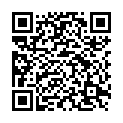|
|
|
| Module code: MBG21-14 |
|
|
2V+3S (5 hours per week) |
|
6 |
| Semester: 3 |
| Mandatory course: yes |
Language of instruction:
German |
Assessment:
Exam achievement
[updated 15.11.2021]
|
MBG21-14 (P311-0175) Management and Professional Pedagogy in Health Care, Bachelor, ASPO 01.10.2021
, semester 3, mandatory course
|
75 class hours (= 56.25 clock hours) over a 15-week period.
The total student study time is 180 hours (equivalent to 6 ECTS credits).
There are therefore 123.75 hours available for class preparation and follow-up work and exam preparation.
|
Recommended prerequisites (modules):
MBG21-1 Academic Methodologies and Study Skills I
MBG21-4 Vocational Pedagogy in Health Care I
MBG21-8 Vocational Pedagogy in Health Care II
[updated 09.10.2024]
|
Recommended as prerequisite for:
MBG21-18 Vocational Pedagogy in Health Care IV
MBG21.B.51 Advanced Didactics and Methodology
MBG21.B.52 Developing a Curriculum
MBG21.B.53 Measuring and Assessing Competence
MBG21.B.54 Educational Guidance in (Vocational) Adult Education
MBG21.S.34 Nursing Care Counseling
[updated 04.12.2025]
|
Module coordinator:
Prof. Dr. Dagmar Renaud |
Lecturer:
Prof. Dr. Dagmar Renaud
[updated 09.10.2024]
|
Learning outcomes:
Educational Psychology:
After successfully completing this module, students will have the following skills and competencies:
Knowledge and Comprehension:
Students will be familiar with models from the psychology of learning field.
Students will be able to describe the basics of selected development theories.
Students will be able to understand how individual prerequisites influence learning success.
Students will be able to identify individual learning requirements.
Students will be able to present views on doctrines.
Students will know how to lead and manage a class.
The Use, Application, and Generation of Knowledge:
Students will be able to implement selected teaching theories into their teaching activities.
Students will be able to initiate teaching/learning processes with regard to individual learning requirements.
Students will be able to design individualized techniques to promote learning requirements.
Students will be able to plan lessons taking into account the characteristics of teaching quality.
Students will be able to promote motivation and interest.
Students will be able to use strategies to prevent classroom disruptions.
Communication and Cooperation:
Students will be able to reflect upon and take into account students´ individual learning difficulties.
Students will be able to provide constructive feedback on others´ learning behavior.
Students will be able to reflect on feedback from others regarding their own learning processes.
Scientific Self-Concept/Professionalism:
Students will be able to understand and reflect upon their own learning processes.
Students will be able to critically reflect upon own professional competence.
Counseling
After successfully completing this module, students will have the following skills and competencies:
Knowledge and Comprehension:
Students will be able to classify the concept of counseling between diversity and uniqueness.
Students will be able to differentiate between how counseling is understood in different contexts.
Students will be able to compare consulting concepts and models.
Students will be familiar with the uses of counseling in specific situations.
Students will be able to describe the counseling process.
The Use, Application, and Generation of Knowledge:
Students will be able to apply concepts and models with regard to specific situations.
Students will be able to clarify consulting assignments.
Students formulate goals throughout the counseling process.
Students will be able to design counseling processes independently.
Communication and Cooperation:
Students will be able to use communicative tools to help those seeking advice gain more knowledge, direction, or problem-solving skills.
Students will be able to cooperate with stakeholders in the healthcare sector to develop offers.
Scientific Self-Concept/Professionalism:
Students will be able to reflect upon different concepts with regard to their applicability to specific situations.
Students will be able to reflect upon their own counseling skills.
[updated 15.11.2021]
|
Module content:
Educational Psychology:
Review of different model ideas for learning:
o Associative learning (behavioristic)
o Learning as behavioral change (behavioristic)
o Learning as the acquisition of knowledge (cognitivist view)
o Learning as the construction of knowledge (constructivist)
Basics of developmental psychology
o Cognitive development
o Identity and self-concept
o Social development
o Moral development
Individual learning requirements
o Attention and working memory / Memory models / Neuroscientific basics
o Intelligence and prior knowledge
o Motivation and self-concept
o Volition and emotion
Perceptions about teaching
o Teaching and learning (Teaching theories and teaching practice in the different traditions.)
o Dimensions of teaching quality
o Prerequisites for successful teaching (model of professional competence)
Basic conditions of teaching (class leadership and class management, assessing and evaluating performance)
Special features of teaching
o Cognitive training
o Promoting motivation and interest
o Promoting individual learning requirements
Special situations
o Students with learning difficulties/disorders
o Education for migrants
o Dealing with exam anxiety
o Bullying
Counseling
Definition and delimitation of terms
Theoretical approaches from relational study areas
o Psychoanalytic/depth psychological approach
o Behavioral science approach
o Humanistic approaches
o Systemic-constructivist approach
o Solution-oriented approach
o Psychosocial approach
o Action-oriented approach
Counselling skills
Counseling in the context of health and nursing care
Counseling process
Case management
Selected counseling methods
Specific counseling situations
Learning guidance
o Employee counseling
o Collegial counseling
o Team counseling
[updated 15.11.2021]
|
Teaching methods/Media:
Blended learning
[updated 15.11.2021]
|
Recommended or required reading:
Recommended literature will be announced at the beginning of the course.
[updated 15.11.2021]
|

